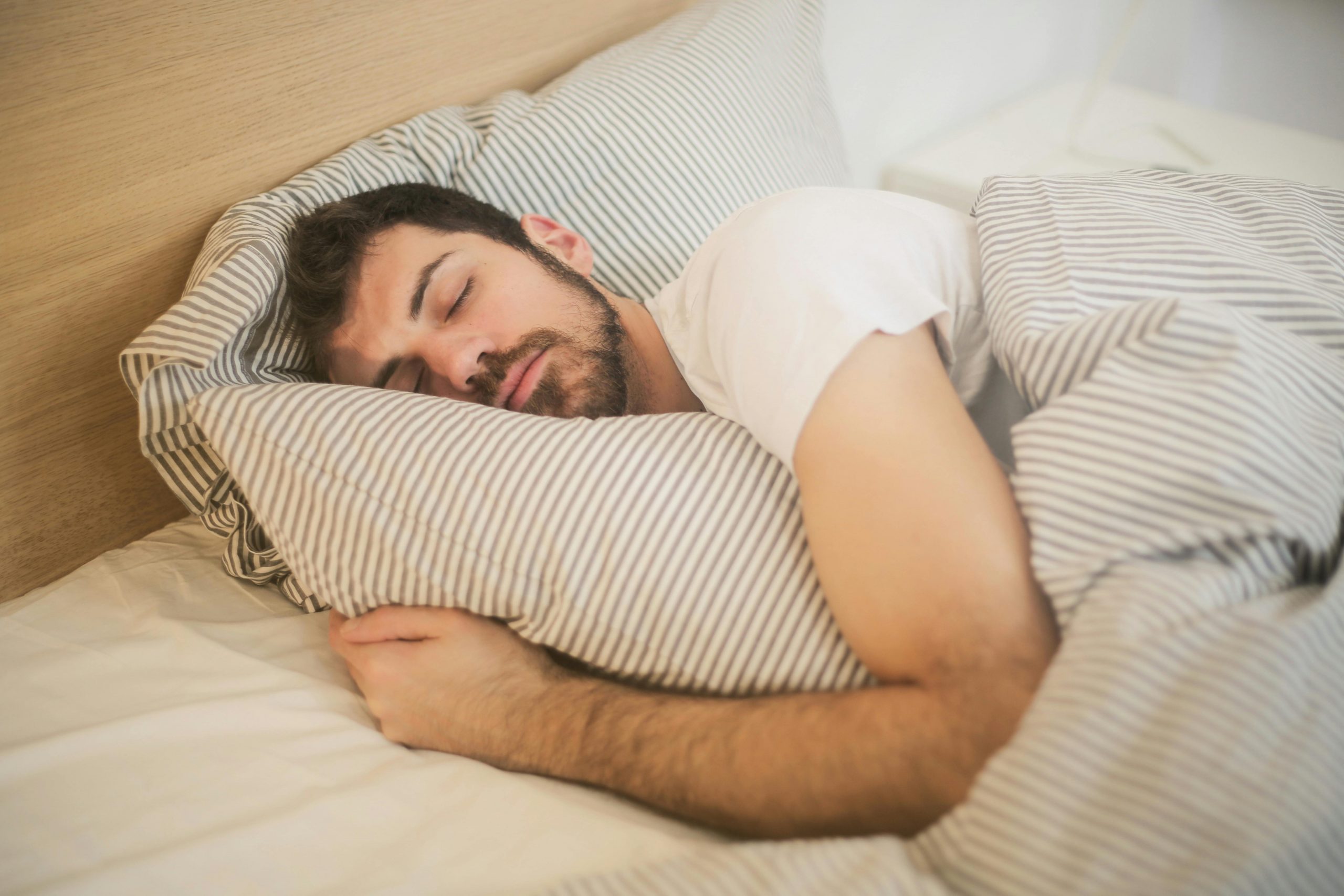
Do you wake up with a dry mouth, sore throat, or bad breath? You might be sleeping with your mouth open. It may seem harmless, but over time, it can lead to several health issues. From poor sleep to dental problems, mouth breathing at night can negatively impact your well-being. The good news is that there are simple ways to fix it, including posture changes, nasal care, and exploring mouth tape benefits.
In this article, we’ll break down why it happens, how it affects you, and what you can do to sleep better—especially if you want to breathe through your nose instead.
What Causes You to Sleep with Your Mouth Open?

There are a few common reasons people breathe through their mouths during sleep:
- Nasal congestion – Allergies, colds, or sinus issues can block nasal passages, making nose breathing hard.
- Sleeping position – Back sleepers may have their mouths fall open naturally during the night.
- Sleep apnea or snoring – These conditions can force the body to breathe through the mouth.
- Enlarged tonsils or adenoids – Especially in kids, these block airflow through the nose.
- Habit – Some people have just gotten used to mouth breathing over time, even without congestion.
Understanding the root cause is the first step toward correcting the problem.
Signs You Sleep with Your Mouth Open
Not sure if you’re a mouth breather at night? Here are some signs:
- Waking up with dry mouth or lips
- Sore throat in the morning
- Bad morning breath
- Snoring or noisy breathing
- Daytime fatigue even after 7–9 hours of sleep
- Gum problems or cavities
- Feeling congested in the morning
You might not realize you’re doing it unless someone points it out—or you notice these symptoms.
Why Sleeping with Your Mouth Open Is Bad for You
Mouth breathing during sleep isn’t just uncomfortable—it can lead to health problems over time. Here’s why it matters:
- Dry Mouth and Oral Health Problems
Mouth breathing reduces saliva, which protects your teeth and gums. Without it, you may develop:
- Tooth decay
- Gum disease
- Mouth sores
- Bad breath
- Worse Sleep Quality
When you breathe through your mouth, you’re more likely to snore or even experience light forms of sleep apnea. This lowers your sleep quality, making you feel tired even after a full night’s rest.
- Higher Risk of Illness
Nose breathing filters and humidifies the air. It also helps trap viruses and bacteria before they enter your lungs. Mouth breathing skips that defense, increasing your risk of respiratory infections.
- Facial Development in Children
In kids, chronic mouth breathing can affect jaw alignment and facial structure. It may also contribute to speech problems or dental crowding.
Benefits of Nasal Breathing
Nasal breathing is how your body is meant to function, especially during rest. Here are some benefits:
- Better oxygen absorption
- Filtered, humidified air
- Stronger immunity
- Improved sleep quality
- Balanced pH and nitric oxide production (supports heart and lung health)
If you’re sleeping with your mouth open, you’re missing out on all of these advantages.
Simple Fixes to Stop Sleeping with Your Mouth Open
If you want to stop mouth breathing at night, try the following steps:
- Clear Nasal Passages Before Bed
If congestion is the issue, treat it:
- Use a saline nasal spray
- Try steam inhalation
- Use a nasal strip or nasal dilator
- Run a humidifier in your bedroom
- Manage allergies with medication
Clearing your nose can make nasal breathing easier and more comfortable.
- Change Your Sleeping Position
Sleeping on your back makes it easier for your mouth to fall open. Try sleeping:
- On your side
- With a wedge pillow to slightly elevate your head
- With a body pillow to keep you from rolling onto your back
This simple change can help your body naturally keep your mouth closed.
- Try Mouth Taping
One of the most talked-about trends in sleep health is mouth taping. It may sound odd at first, but many people find it helpful for retraining themselves to breathe through the nose at night.
Mouth tape benefits include:
- Improved nasal breathing
- Less snoring
- Better sleep quality
- Reduced dry mouth and bad breath
- Support for oral health by keeping the mouth moist
To try mouth taping, use a breathable, skin-safe tape made specifically for this purpose. Start slow—try it for naps or short periods at first, and make sure you can breathe well through your nose before committing to overnight use.
When to See a Doctor

If you’ve tried everything and still wake up with a dry mouth or have trouble breathing through your nose, it’s time to seek professional help. You might need to see:
- A primary care doctor
- An ear, nose, and throat (ENT) specialist
- A sleep doctor (for a sleep study)
- A dentist (if you grind your teeth or have jaw issues)
They can check for underlying issues like:
- Deviated septum
- Enlarged tonsils
- Sleep apnea
- Chronic sinusitis
Treatment might include medication, surgery, or sleep devices like CPAP machines.
What About Kids Who Sleep with Their Mouth Open?
If your child sleeps with their mouth open, don’t ignore it. Long-term mouth breathing in kids can affect their:
- Facial growth
- Jaw and teeth alignment
- Speech development
- Sleep quality and behavior
Talk to your pediatrician or dentist. They might refer you to an ENT specialist for further testing or treatment.
Tips to Support Better Nighttime Breathing
If you’re working on correcting mouth breathing, here are a few more lifestyle tips that can help:
- Stay hydrated throughout the day to keep airways moist.
- Avoid alcohol or heavy meals before bed, which can relax your throat muscles.
- Practice deep nasal breathing during the day, even during short breaks.
- Try nasal breathing exercises (like the Buteyko method) to train your breathing pattern.
- Keep your sleeping space clean to reduce allergens and congestion triggers.
Final Thoughts
Sleeping with your mouth open might seem harmless, but over time, it can lead to real problems—from tooth decay to fatigue. It also robs you of the many health benefits of nasal breathing. Thankfully, you can take steps to fix the issue, whether by clearing your nose, changing your sleep posture, or even experimenting with mouth taping.
Many people are surprised by how much better they sleep—and feel—once they stop mouth breathing at night. Give it a try, and explore mouth tape benefits as part of your nightly routine.
